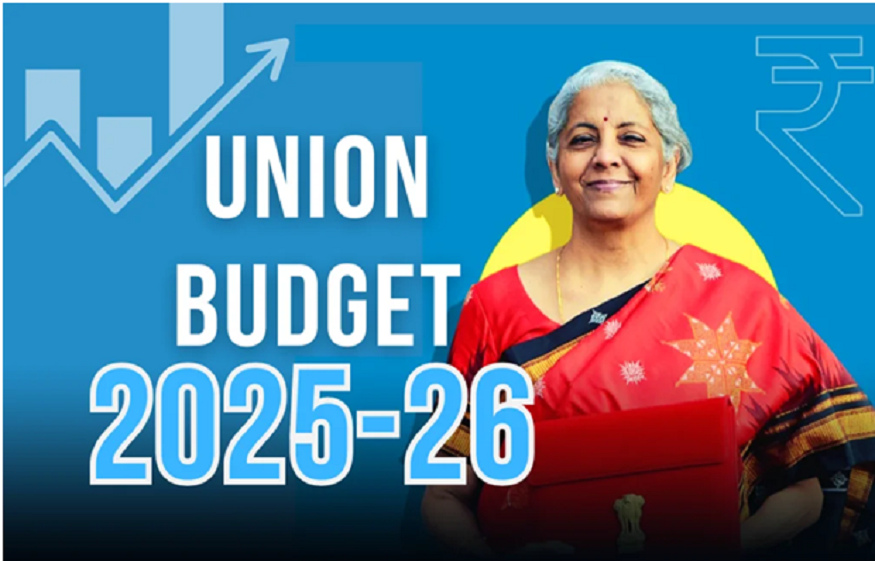 The Union Budget 2025, presented by Finance Minister Nirmala Sitharaman, outlines a comprehensive strategy aimed at stimulating economic growth, fostering innovation, and ensuring fiscal prudence. This article delves into the Budget Component impact across various sectors, highlighting key allocations and policy measures.
The Union Budget 2025, presented by Finance Minister Nirmala Sitharaman, outlines a comprehensive strategy aimed at stimulating economic growth, fostering innovation, and ensuring fiscal prudence. This article delves into the Budget Component impact across various sectors, highlighting key allocations and policy measures.
Agriculture and Rural Development
Recognizing the pivotal role of agriculture in India’s economy, the government has initiated a six-year program to boost the production of pulses and cotton. This initiative includes state agencies purchasing pulses at guaranteed prices to support farmers. Additionally, there’s a focus on developing high-yielding seed varieties to address challenges arising from shrinking farmlands and erratic weather patterns. These measures aim to reduce import dependence and enhance farmers’ income.
Infrastructure and Capital Expenditure
The budget emphasizes infrastructure development with a capital expenditure outlay of ₹11.2 trillion for 2025-26. This investment targets projects in roads, railways, ports, and renewable energy, aiming to bolster connectivity and stimulate economic activity. However, some analysts express concerns that the increase may not be substantial enough to drive the desired growth, potentially affecting industrial and infrastructure firms.
Tax Reforms and Middle-Class Relief
In a bid to boost consumption, the government has implemented significant income tax cuts for the salaried middle class. The income tax threshold has been raised from $8,074 to $14,800, increasing disposable income and encouraging spending. This move is expected to stimulate demand in various sectors, contributing to overall economic growth.
Support for Startups and MSMEs
The budget introduces several measures to foster entrepreneurship and support Micro, Small, and Medium Enterprises (MSMEs). Notably, the abolition of the angel tax is set to facilitate capital raising for early-stage startups, crucial for their growth and innovation. Additionally, simplified tax compliance and extended tax exemptions for private equity and sovereign funds are expected to attract global investments, bolstering the startup ecosystem.
Energy and Environment
A significant focus has been placed on energy security and transition. The government has announced a Nuclear Energy Mission aiming to achieve 100 GW of nuclear power by 2047. Furthermore, incentives for renewable energy and the establishment of emission targets for hard-to-abate sectors are steps toward a sustainable future. These initiatives align with global efforts to combat climate change and promote clean energy.
Healthcare and Social Welfare
The budget allocates funds to enhance healthcare infrastructure and access. Initiatives include formalizing gig economy workers, improving their access to healthcare and welfare programs. Additionally, investments in skill development and employment generation are expected to strengthen the country’s social fabric and promote inclusive growth.
Trade and Industry
In a move to integrate with the global economy, India has reduced import duties on high-end motorcycles and other items, signaling a commitment to avoid protectionist trade measures. This approach aims to support domestic industries while encouraging international trade partnerships. However, trade experts note that India’s tariffs remain high compared to other major economies, suggesting room for further liberalization.
Financial Sector and Investment
The Union Budget reflects the government’s commitment to streamlining the tax structure to create a more investment-friendly environment. The abolition of the angel tax and simplification of the capital gains tax regime are expected to enhance post-tax returns for investors, making Indian private equity funds more attractive. These measures aim to invigorate private investment and support economic expansion.
Conclusion
The Union Budget 2025 presents a balanced approach, addressing immediate economic concerns while laying the foundation for long-term growth. By focusing on infrastructure development, tax reforms, support for startups and MSMEs, and sustainable energy initiatives, the budget aims to propel India toward a prosperous and developed future. However, the effectiveness of these measures will depend on their implementation and the global economic environment.





